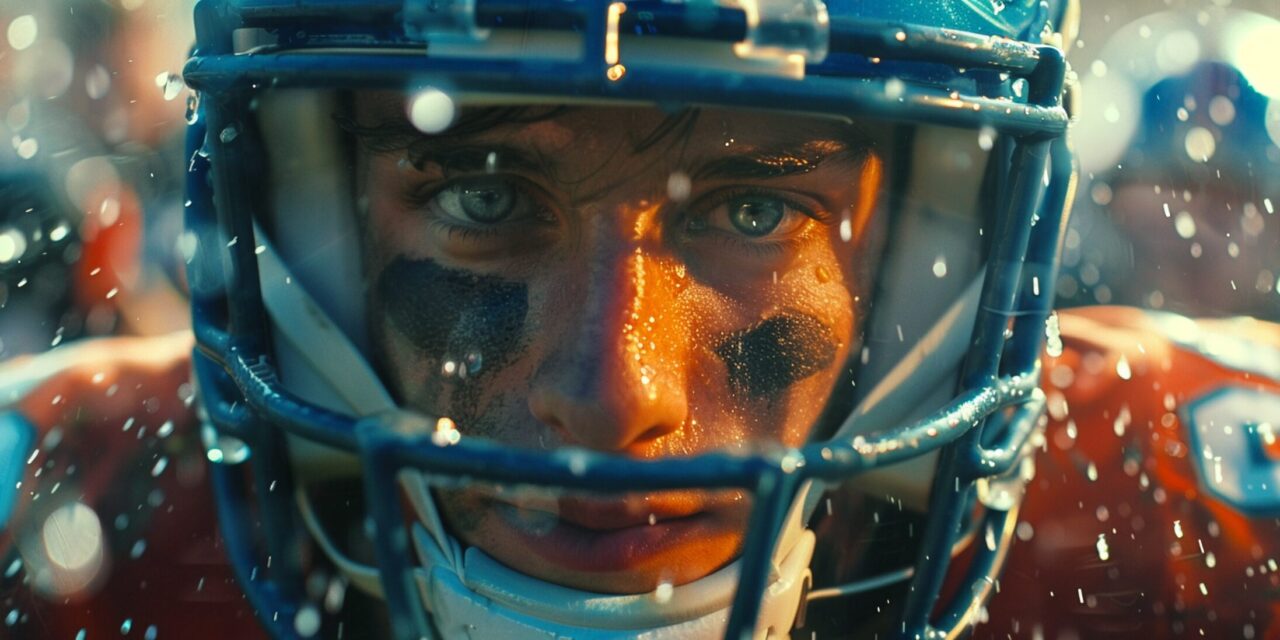The fall sport season is a thrilling yet challenging time for high school athletes. In football, girls’ swimming, boys’ soccer, and cross country, the pressure intensifies as games narrow toward championship matches. Athletes face immense physical and mental demands, often with smaller margins for error. Whether it’s making a critical mistake in a football game or losing pace in a cross-country race, athletes with strong mental toughness can quickly recover, keep their confidence intact, and deliver their peak performances when it matters most. Through teaching focus, visualization, positive self-talk, controlled breathing, and practice drills, Athletic Directors can instill mental toughness in their athletes.
Focus on Process, Not Outcome
One of the primary strategies to build mental toughness is teaching athletes to concentrate on their effort and the controllable aspects of their performance rather than the outcome. Encouraging athletes to focus on the present task—whether it’s executing a play or pacing during a run—helps them avoid getting overwhelmed by thoughts of winning or losing.
This is especially helpful in sports like football or soccer, where a single error can shift the momentum of a game. To facilitate this mentality, set clear, process-driven goals. For example, in cross-country, instruct athletes to focus on hitting their personal splits during a race rather than their final position.
Visualization and Mental Rehearsal
Visualization is one of the most powerful tools athletes can use to build mental toughness. It involves mentally rehearsing a flawless performance and how they will handle setbacks, which primes the brain for success and strengthens confidence. When athletes regularly visualize themselves succeeding under pressure, they are more likely to replicate those outcomes during competition.
According to Kay M. Porter in The Mental Athlete, effective visualization involves incorporating as many senses as possible, including the sights, sounds, and even emotions of a perfect performance. Athletes should visualize themselves executing every part of their routine, from their warm-up to their most challenging moments in the game, feeling calm, confident, and in control.
For most athletes, visualization is most effective when done regularly in the weeks leading up to a competition, helping them stay relaxed, focused, and mentally prepared for the unexpected.
Emphasize Positive Self-Talk
Athletes’ internal dialogue greatly affects their performance. Positive self-talk—focusing on phrases like “I can do this” or “Stay calm and execute”—can help athletes maintain focus and confidence, especially during moments of high pressure. On the other hand, negative self-talk can lead to hesitation and increased anxiety.
Incorporating self-talk strategies into daily practice routines encourages athletes to develop positive habits that translate into game-time situations. Football and soccer athletes in particular benefit from this technique, as maintaining composure in the final minutes of a game is often the difference between advancing and being eliminated.
Controlled Breathing Techniques
Anxiety can manifest physically, leading to shallow breathing, tension, and reduced performance. Teaching athletes controlled breathing techniques can help manage anxiety and maintain composure. Teaching athletes controlled breathing techniques, such as deep belly breathing or box breathing (inhaling for four seconds, holding for four, exhaling for four, and pausing for four), can lower stress levels and refocus attention. These techniques are especially helpful in endurance sports like cross-country and swimming, where controlled breathing is directly tied to physical performance.
Simulate High-Pressure Situations
One of the most effective ways to build mental toughness is by recreating high-pressure situations in practice. For example, in football, a two-minute drill where players need to score quickly can prepare them for down-to-the-wire moments. In soccer practice, swapping players from the winning team to the losing team can help athletes learn how to push themselves to win. These practice scenarios help athletes become accustomed to performing under pressure and make them more resilient when they encounter it in real competition.
Mental toughness is the key differentiator in post-season success. Athletic Directors who prioritize the mental side of their athletes’ training will equip them with the tools to handle adversity, recover from mistakes, and perform to the best of their abilities. As post-season games approach for fall sports, strengthening athletes’ minds is as essential as refining their physical skills.
By teaching athletes to control their focus on the present, visualize, and maintain a positive mindset, Athletic Directors can help ensure their teams are mentally ready to face the challenges ahead. Whether it’s in a state championship game or the final lap of a cross-country race, mental toughness can be the difference maker.
Sources:
- The Essential Guide for Mental Performance Consultants (Digital Resource), by Association for Applied Sport Psychology. (2021)
- The Mental Athlete eBook, by Kay M. Porter. (2003)










